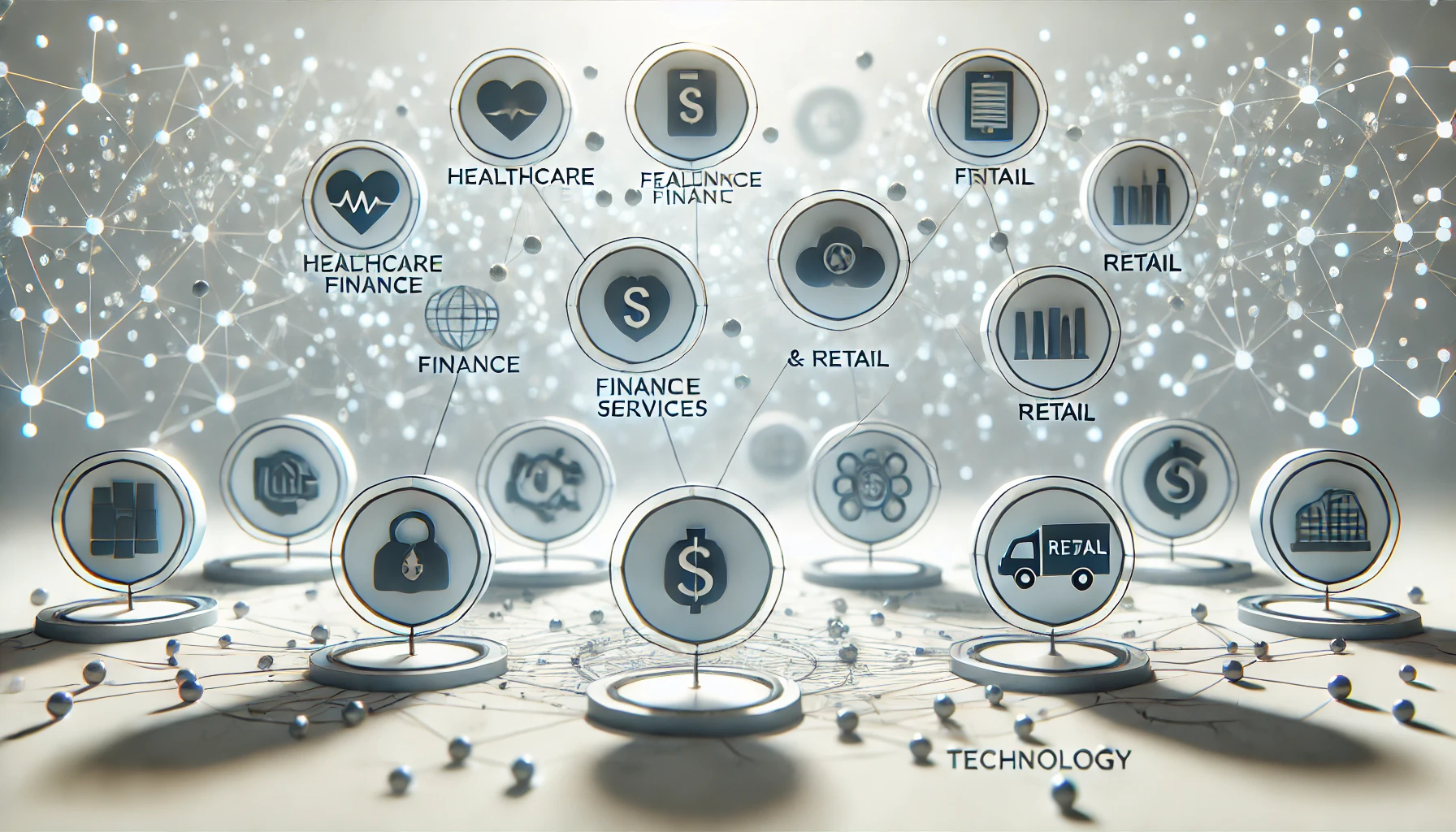Have you ever wondered which industries truly thrive when it comes to harnessing the power of data hygiene services? The impact of clean and accurate data goes far beyond what meets the eye. From healthcare organizations meticulously handling patient information to financial institutions safeguarding against fraudulent activities, the breadth of industries benefiting from data hygiene services might surprise you. Stay tuned to explore the diverse landscape of sectors that are revolutionizing their operations through the effective management of data hygiene practices.
Healthcare
Healthcare organizations rely heavily on accurate and up-to-date data to provide quality patient care and ensure regulatory compliance. Patient data protection and healthcare data management are paramount in maintaining the confidentiality and security of sensitive information. Ensuring medical record accuracy is crucial not only for patient care but also for legal and ethical reasons. Patient privacy is a top priority, and healthcare providers must adhere to strict guidelines to safeguard personal information.
Effective healthcare data management requires implementing robust systems and protocols to protect patient data from breaches and unauthorized access. Data hygiene services play a vital role in maintaining the integrity and cleanliness of healthcare databases, minimizing errors, and enhancing decision-making processes. By ensuring that patient information is accurate, up-to-date, and secure, healthcare organizations can improve operational efficiency, prevent compliance issues, and ultimately deliver better care to patients.
Finance
In the finance sector, data hygiene services play a crucial role in enhancing fraud detection capabilities. By ensuring the accuracy and completeness of data, financial institutions can better assess risks and identify potential fraudulent activities. Additionally, clean and organized data provides valuable insights into customer behaviors and preferences, allowing for more personalized and targeted financial services.
Enhanced Fraud Detection
Enhanced fraud detection within the finance industry is a critical component in safeguarding against financial crimes and protecting assets. By implementing robust cybersecurity measures and identity theft prevention strategies, financial institutions can significantly reduce the risk of fraudulent activities. Cybersecurity measures such as encryption, multi-factor authentication, and intrusion detection systems play a vital role in securing sensitive financial data and detecting unauthorized access attempts.
Identity theft prevention techniques, including biometric authentication and identity verification processes, help in verifying the identity of individuals conducting financial transactions. These measures not only enhance security but also aid in identifying potential fraudulent activities early on. Leveraging data hygiene services to maintain accurate and up-to-date customer information is crucial for effective fraud detection in the finance sector.
Moreover, data cleansing techniques can help in identifying inconsistencies and anomalies in financial data, which are often indicators of fraudulent behavior. By continuously monitoring and analyzing financial data with the help of data hygiene services, financial institutions can enhance their fraud detection capabilities and mitigate potential risks associated with financial crimes.
Improved Risk Assessment
Within the finance sector, bolstering risk assessment processes is paramount to ensuring the stability and security of financial operations. By utilizing data hygiene services to enhance data accuracy, financial institutions can significantly improve their risk management capabilities. Ensuring that the data used for risk assessment is clean and up-to-date enables organizations to make more informed decisions and identify potential risks effectively.
Data accuracy plays a crucial role in risk assessment within the finance industry. Inaccurate or outdated data can lead to flawed risk evaluations, which may result in significant financial losses or regulatory issues. By implementing data hygiene services, organizations can cleanse their databases, remove duplicates, and standardize information, thus enhancing the quality and reliability of the data used for risk assessment.
Effective risk management relies on the ability to analyze accurate and reliable data. By investing in data hygiene services to improve data accuracy, financial institutions can strengthen their risk assessment processes and better safeguard their operations against potential threats.
Better Customer Insights
To gain a competitive edge in the finance industry, optimizing customer insights is crucial for informed decision-making and targeted marketing strategies. By leveraging data hygiene services, finance companies can enhance their understanding of customers to drive business growth. Here’s how it can benefit you:
- Customer Segmentation: Clean and accurate data allows for precise categorization of customers based on behavior, demographics, and preferences.
- Marketing Automation: With clean data, automated marketing processes become more effective in reaching the right audience with personalized messages.
- Predictive Analytics: Clean data enables the use of predictive analytics to forecast customer behaviors and trends, aiding in strategic decision-making for future campaigns and offerings.
Moreover, data hygiene services contribute to improving customer retention rates by enabling tailored communication and services that resonate with each customer segment. By implementing these insights effectively, finance companies can strengthen relationships with customers and drive sustainable business growth.
Retail
When it comes to the retail industry, data hygiene services play a crucial role in maintaining accurate customer information and improving marketing strategies. By ensuring clean and up-to-date data, retail businesses can enhance their operations through inventory optimization and targeted customer segmentation.
Inventory optimization is a key benefit of data hygiene services in retail. By having accurate data on product demand, sales trends, and stock levels, retailers can streamline their inventory management processes, reduce excess stock, and avoid stockouts. This leads to improved operational efficiency and cost savings.
Moreover, customer segmentation is another area where data hygiene services prove invaluable in the retail sector. By analyzing and segmenting customer data based on demographics, purchase history, and preferences, retailers can personalize marketing campaigns, tailor product recommendations, and enhance customer satisfaction. This targeted approach not only boosts sales but also fosters long-term customer loyalty.
Marketing
Moving from the realm of retail, where data hygiene services optimize inventory and enhance customer segmentation, the marketing industry stands to benefit significantly from clean and accurate data. In marketing, utilizing data-driven targeting and customer segmentation can revolutionize campaigns and boost overall effectiveness.
- Data-Driven Targeting: With accurate data, marketing professionals can target specific audiences based on demographics, behaviors, and preferences. This targeted approach ensures that marketing efforts reach the right people at the right time, increasing the likelihood of conversion.
- Improved Customer Segmentation: Clean data allows for more precise customer segmentation, enabling marketers to tailor their messages and offers to different segments. By understanding customer behavior and preferences through accurate data, marketers can create personalized and relevant campaigns that resonate with their target audience.
- Enhanced Campaign Performance: Utilizing clean data for data-driven targeting and customer segmentation leads to improved campaign performance, higher engagement rates, and better ROI. Marketers can optimize their strategies based on accurate insights, resulting in more effective and successful marketing initiatives.
Manufacturing
How does accurate data impact the manufacturing industry? In manufacturing, having precise data is crucial for optimizing the supply chain and inventory management processes. Accurate data helps in tracking raw materials, monitoring production schedules, and forecasting demand accurately. By ensuring data hygiene in manufacturing operations, companies can minimize errors in inventory records, reduce stockouts, and streamline the procurement of materials.
Effective data hygiene services enable manufacturers to maintain an organized supply chain by providing real-time insights into inventory levels, production rates, and supplier performance. This data-driven approach helps in identifying inefficiencies, reducing lead times, and enhancing overall operational efficiency. Moreover, accurate data allows manufacturers to make informed decisions regarding production planning, resource allocation, and order fulfillment.
Education
In the education sector, data hygiene services play a crucial role in ensuring student data security. By maintaining clean and accurate databases, educational institutions can safeguard sensitive information from breaches and unauthorized access. Additionally, these services enable schools to enhance performance analytics and streamline compliance monitoring processes for better overall operational efficiency.
Student Data Security
When considering the realm of student data security within the education sector, it becomes paramount to address the increasing importance of safeguarding sensitive information. Schools must prioritize school database protection and implement robust cybersecurity measures to ensure student privacy safeguards and prevent data breaches.
- School Database Protection: Implementing encryption protocols and access controls to safeguard student information stored in school databases is crucial.
- Cybersecurity Measures: Regular security audits, software updates, and employee training on cybersecurity best practices are essential to mitigate potential risks.
- Student Privacy Safeguards: Establishing strict data handling policies, obtaining explicit consent for data usage, and limiting access to sensitive information help maintain student privacy.
Performance Analytics Enhancement
To enhance educational outcomes through data-driven decision-making, the implementation of performance analytics tools is imperative in the education sector. Data visualization and predictive modeling play crucial roles in transforming vast amounts of educational data into actionable insights. By leveraging these tools, educational institutions can gain a deeper understanding of student performance metrics, learning patterns, and areas needing improvement.
Data-driven decision-making allows educators to tailor teaching methods to individual student needs through customer segmentation. This approach ensures personalized learning experiences, ultimately enhancing student success rates. Predictive modeling further enables educational institutions to forecast student performance trends, identify at-risk individuals, and proactively intervene to provide additional support.
Incorporating performance analytics not only enhances academic outcomes but also aids in resource allocation, curriculum development, and overall institutional effectiveness. By harnessing the power of data, the education sector can continuously evolve and adapt to meet the dynamic needs of students and educators alike.
Compliance Monitoring Support
Compliance monitoring support in the education sector is crucial for ensuring adherence to regulatory standards and guidelines. Educational institutions handle vast amounts of sensitive data, making data privacy and regulatory compliance top priorities. Here’s why compliance monitoring support is essential in the education sector:
- Protection of Student Data: Ensuring data privacy safeguards students’ personal information from unauthorized access or misuse.
- Adherence to Data Retention Policies: Monitoring compliance helps institutions follow regulations on how long data should be retained and when it should be securely disposed of.
- Mitigation of Legal Risks: By actively monitoring compliance, educational organizations can minimize the risk of facing penalties or lawsuits due to data breaches or non-compliance with regulations.
In the education sector, leveraging compliance monitoring support is not just a best practice but a necessity to uphold the trust of students, parents, and regulatory bodies.
Telecommunications
The telecommunications industry relies heavily on accurate and up-to-date data to drive its operations and ensure seamless connectivity for customers. Network optimization is a crucial aspect for telecom companies to enhance their infrastructure efficiency and deliver high-quality services. By utilizing data hygiene services, telecom companies can clean, standardize, and update their databases, leading to improved network performance and reduced downtime.
Moreover, customer retention is a key focus for telecommunications companies, as retaining existing customers is often more cost-effective than acquiring new ones. Data hygiene services play a vital role in customer retention by ensuring that customer information is accurate and current, enabling personalized communication and targeted marketing efforts. By maintaining clean and reliable customer data, telecom companies can enhance customer satisfaction, loyalty, and ultimately, profitability.
Government
Government agencies at all levels handle vast amounts of data critical for decision-making, policy implementation, and public service delivery. Ensuring data accuracy and cleanliness is crucial to uphold data transparency and accountability in government operations. By utilizing data hygiene services, government agencies can significantly benefit in various ways:
- Improved Data Accuracy: Clean and accurate data enables government agencies to make more informed and reliable decisions, leading to enhanced efficiency and effectiveness in public service delivery.
- Enhanced Accountability: Proper data hygiene practices help maintain the integrity of government data, fostering transparency and accountability in the decision-making process.
- Facilitation of Data-Driven Policy Decisions: Reliable data sets the foundation for data-driven policy decisions, enabling governments to devise and implement strategies that are backed by accurate insights, ultimately improving public service quality and citizen satisfaction.
Implementing data hygiene services empowers government agencies to harness the full potential of their data, driving better outcomes for both the government and the citizens they serve.
Real Estate
In the realm of Real Estate, the importance of data hygiene services cannot be underestimated. Ensuring accurate and up-to-date data is crucial for various aspects within the real estate industry, particularly in property valuation and market analysis.
Property valuation heavily relies on precise data to determine the worth of a property. Data hygiene services play a vital role in maintaining the accuracy of property information, such as square footage, amenities, and recent renovations. Clean data leads to more reliable property valuations, which are essential for buyers, sellers, and real estate professionals.
Market analysis in real estate also benefits significantly from data hygiene services. Clean data allows for a more thorough analysis of market trends, pricing fluctuations, and demand patterns. This information is invaluable for real estate investors, developers, and agents to make informed decisions regarding buying, selling, or investing in properties.
Hospitality
In the hospitality industry, data hygiene services play a crucial role in ensuring guest data security. By maintaining accurate and updated customer information, businesses can enhance personalized customer experiences and tailor services to individual preferences. Moreover, efficient reservation handling facilitated by clean data leads to smoother operations and improved guest satisfaction.
Guest Data Security
With the rise of digital technology in the hospitality industry, guest data security has become a critical concern for hotels and resorts. Ensuring the protection of sensitive guest information is paramount to maintaining trust and safeguarding against potential cyber threats.
Key Considerations for Guest Data Security:
- Data Encryption: Implementing robust data encryption protocols can help safeguard guest data from unauthorized access or breaches.
- Cybersecurity Training: Providing comprehensive cybersecurity training to staff members can help inculcate a culture of security awareness and best practices.
- Biometric Authentication and Access Control: Utilizing biometric authentication methods and stringent access control measures can enhance the security of guest data and prevent unauthorized entry into sensitive areas.
Personalized Customer Experience
Enhancing the hospitality industry’s customer experience relies heavily on personalized services tailored to individual preferences and needs. Data-driven personalization is key in delivering exceptional customer engagement strategies. By maintaining high data quality, hospitality businesses can gather valuable insights into customer behaviors and preferences, allowing for tailored experiences that enhance satisfaction and loyalty.
Implementing data-driven personalization involves analyzing guest data to understand preferences, such as room type, amenities, and dining choices. This information enables hotels and resorts to offer personalized recommendations and promotions, creating a more engaging experience for guests. By leveraging customer engagement strategies based on data insights, hospitality businesses can build stronger relationships with guests and increase loyalty.
Efficient Reservation Handling
To optimize operational efficiency and streamline customer interactions, efficient reservation handling is paramount in the hospitality industry. Implementing reservation automation can significantly enhance the booking process, allowing for real-time updates and reducing the risk of overbooking. Data validation is crucial for ensuring that customer information is accurate and up-to-date, preventing errors that could lead to double bookings or missed reservations. By utilizing data hygiene services, hospitality businesses can maintain a clean and organized database, improving the overall reservation handling experience for both staff and customers.
Key Benefits of Efficient Reservation Handling:
- Streamlined Booking Process: Automation simplifies reservations and minimizes manual errors.
- Improved Data Accuracy: Validation processes ensure that customer information is correct and reliable.
- Enhanced Customer Experience: Efficient handling leads to smoother interactions and increased satisfaction levels.
Frequently Asked Questions
How Can Data Hygiene Services Improve Patient Care in Healthcare?
To enhance patient care in healthcare, data accuracy through hygiene services is vital. Improving data quality leads to better health outcomes. Ensure precision in records for optimal treatment. Your patients deserve the best care possible.
What Impact Does Data Hygiene Have on Fraud Prevention in Finance?
Data hygiene plays a vital role in fraud prevention in finance. By ensuring accurate, up-to-date information, it improves compliance and reduces risk. With clean data, financial institutions can better detect and prevent fraudulent activities, safeguarding assets effectively.
How Does Data Cleanliness Benefit Customer Loyalty in Retail?
Data accuracy through data cleanliness in retail fosters customer loyalty by providing personalized experiences, targeted promotions, and timely communications. Enhancing customer retention rates, data hygiene ensures accurate customer profiles, driving long-term brand loyalty.
Can Data Hygiene Enhance Targeted Advertising in Marketing?
Data hygiene is crucial for enhancing targeted advertising in marketing. By ensuring data segmentation accuracy and maintaining clean customer profiles, you can optimize advertising campaigns to reach the right audience, leading to increased engagement and higher conversion rates.
What Role Does Data Hygiene Play in Supply Chain Optimization in Manufacturing?
In supply chain optimization for manufacturing, data hygiene ensures accurate inventory management, streamlined logistics, and efficient production planning. Clean data minimizes errors, reduces costs, and enhances decision-making processes, ultimately boosting operational efficiency and overall productivity within the manufacturing sector.




